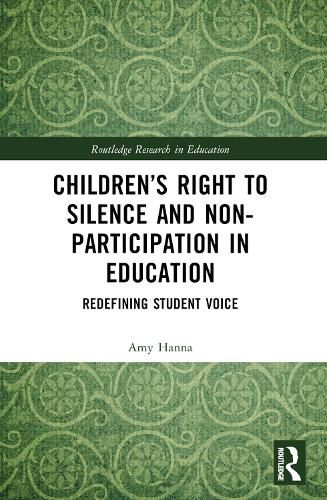Readings Newsletter
Become a Readings Member to make your shopping experience even easier.
Sign in or sign up for free!
You’re not far away from qualifying for FREE standard shipping within Australia
You’ve qualified for FREE standard shipping within Australia
The cart is loading…






This insightful book re-examines the concept of student voice through an exploration of children's implicit rights to silence and non-participation. By considering what remains unspoken but is voiced through silence, this book theorises silence through the lens of power.
Responding to calls for more critical approaches to children's participation under the UN Convention on the Rights of the Child, this unique exposition of silence ventures beyond traditional notions of voice as a defining term for justice and participation, and traditional understandings of silence as powerlessness. Instead, this book presents young people's uses and understandings of silence at school as an instrument of power. Based on empirical research, the book reconceptualises children's participation rights through silence.
Addressing an important gap in the literature on student voice and children's participation, this book is a valuable resource for academics, researchers, and postgraduate students in the fields of children's human rights, childhood studies, and educational philosophy.
$9.00 standard shipping within Australia
FREE standard shipping within Australia for orders over $100.00
Express & International shipping calculated at checkout
This insightful book re-examines the concept of student voice through an exploration of children's implicit rights to silence and non-participation. By considering what remains unspoken but is voiced through silence, this book theorises silence through the lens of power.
Responding to calls for more critical approaches to children's participation under the UN Convention on the Rights of the Child, this unique exposition of silence ventures beyond traditional notions of voice as a defining term for justice and participation, and traditional understandings of silence as powerlessness. Instead, this book presents young people's uses and understandings of silence at school as an instrument of power. Based on empirical research, the book reconceptualises children's participation rights through silence.
Addressing an important gap in the literature on student voice and children's participation, this book is a valuable resource for academics, researchers, and postgraduate students in the fields of children's human rights, childhood studies, and educational philosophy.